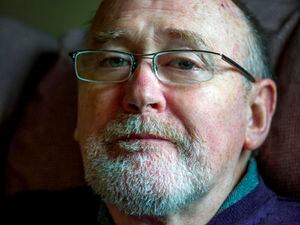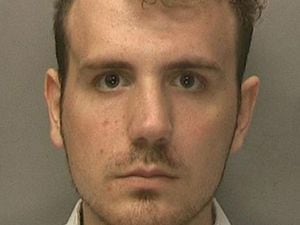Court to rule on terminally ill man’s challenge to assisted dying ban
Motor neurone disease sufferer Noel Conway, 68, is fighting for the right to a ‘peaceful and dignified’ death.

The Court of Appeal is to rule on a challenge by a terminally ill man against a “blanket ban” on assisted dying.
Motor neurone disease sufferer Noel Conway, who says he feels “entombed” by his illness, has fought a long legal battle for the right to a “peaceful and dignified” death.
The 68-year-old retired lecturer from Shrewsbury wants to be helped to die – which the law currently prevents – when he has less than six months left to live, still has mental capacity to make the decision and has made a “voluntary, clear, settled and informed” decision.
He has proposed that he could only receive assistance to die if a High Court judge determined that he met all three of those criteria.
Mr Conway previously asked the High Court for a declaration that the Suicide Act 1961 is incompatible with Article 8 of the European Convention on Human Rights, which relates to respect for private and family life, and Article 14, which protects from discrimination.
His case was rejected last October but he appealed to three senior judges – Master of the Rolls Sir Terence Etherton, Sir Brian Leveson and Lady Justice King – who will give their ruling on Wednesday.
His counsel, Nathalie Lieven QC, said the law as it stands interferes with his rights and that the court must decide whether that interference is “justified and proportionate”.
“The question for this court is not a very generalised one of the morality or ethics of allowing doctors to assist patients to die.
“The question for this court is rather a focused one of whether for this very specific cohort, ie, terminally ill people with less than six months to live, the ban is justifiable because of an impact on the weak and vulnerable.”
She said that the proposal of having a High Court judge oversee the process was “at the heart” of the issue.
She added: “Mr Conway is dying because of the effects of his illness – any change in the law could not, itself, increase the number of those with terminal illnesses.
“It could not therefore, per se, give rise to any increase in risk of death amongst (for instance) those with disabilities who are not terminally ill, and hence any wider risk to the general community.”
Mr Conway, who is supported by the campaign group Dignity in Dying, was too unwell to travel to London for the hearing.
He is now dependent on a ventilator for up to 23 hours a day and only has movement in his right hand, head and neck.
He cites his current options as to “effectively suffocate” by choosing to remove his ventilator or spend thousands travelling to Switzerland to end his life and have his family risk prosecution.
His appeal was opposed by the Secretary of State for Justice, with Humanists UK, Care Not Killing and Not Dead Yet UK also making submissions.





